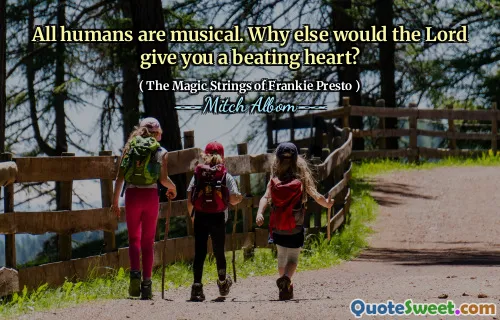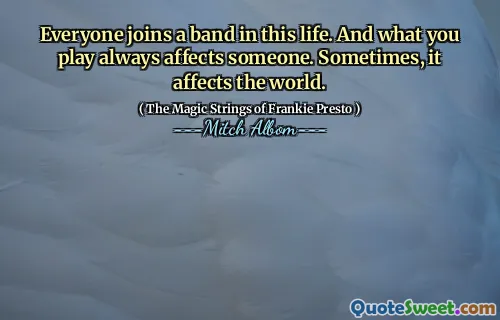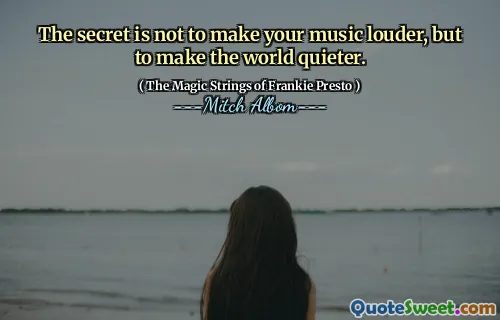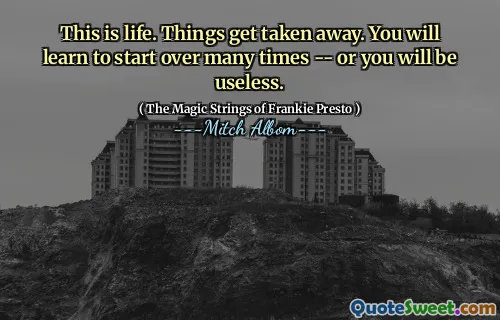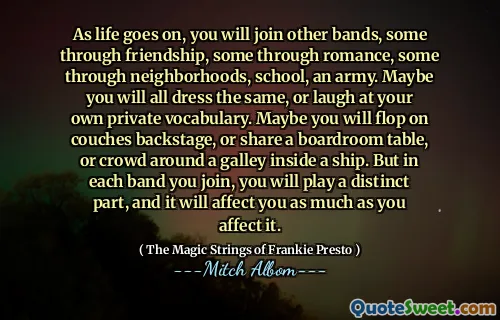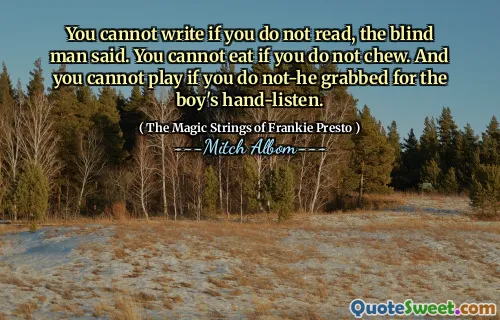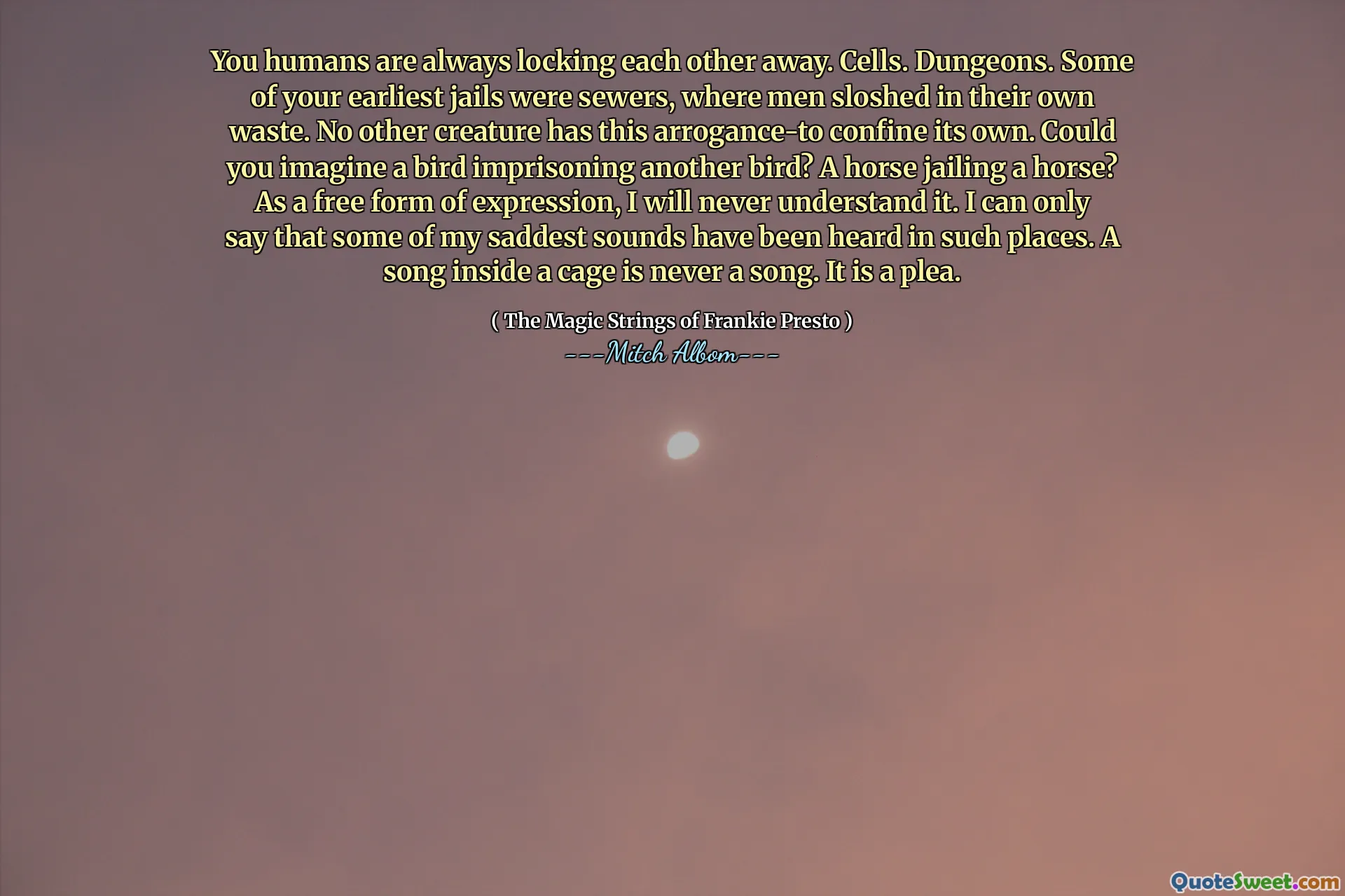
You humans are always locking each other away. Cells. Dungeons. Some of your earliest jails were sewers, where men sloshed in their own waste. No other creature has this arrogance-to confine its own. Could you imagine a bird imprisoning another bird? A horse jailing a horse? As a free form of expression, I will never understand it. I can only say that some of my saddest sounds have been heard in such places. A song inside a cage is never a song. It is a plea.
In the reflection on human behavior, the author highlights the harsh reality of confinement and the arrogance behind imprisoning individuals. He poses a thought-provoking question about how other creatures would never confine their own kind, contrasting this with the human tendency to create jails and cells. This reflects a deep-seated sadness about the ways humans treat each other, often reducing their existence to that of mere prisoners.
The notion of a "caged song" emphasizes the pain and yearning present in confinement. The author conveys the idea that a song sung from captivity lacks its true essence, as it transforms into a cry for help. This poignant depiction illustrates the emotional and psychological toll that imprisonment inflicts, suggesting that freedom is a vital aspect of genuine expression and creativity.
